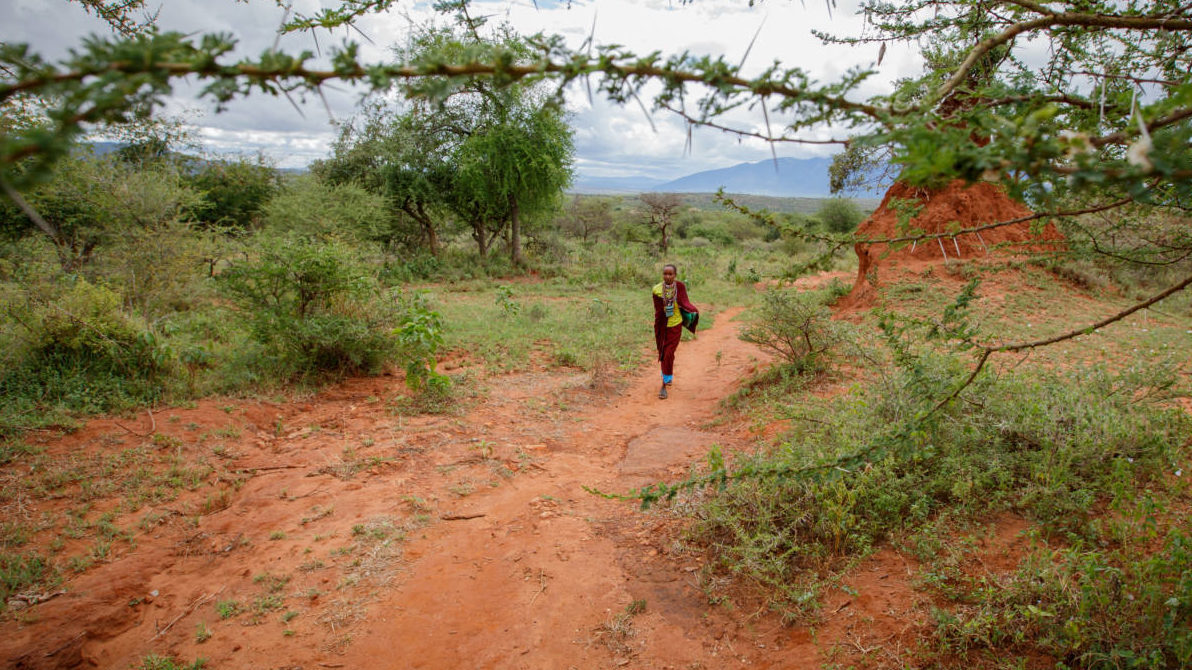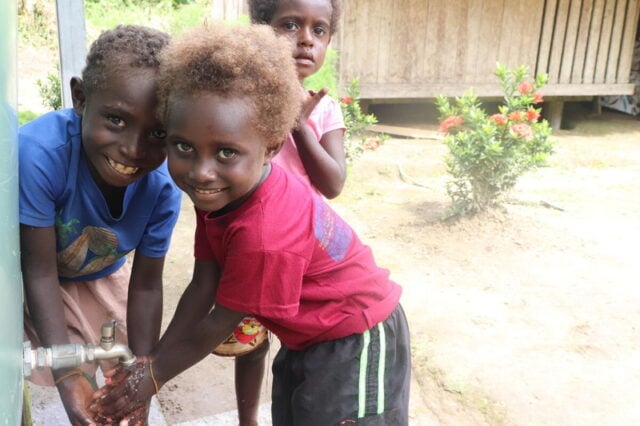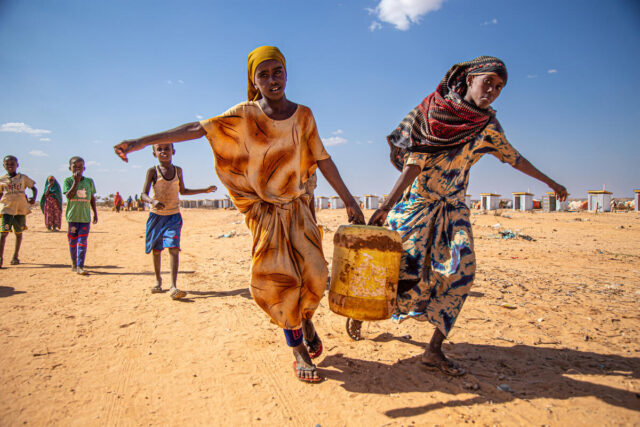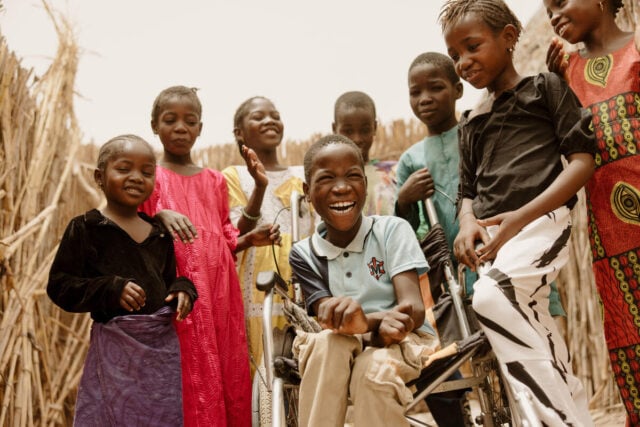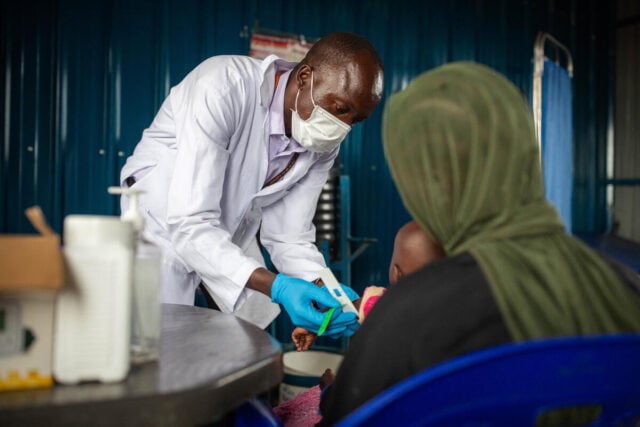The brothers giggle as water pours out of the spigot, through their fingers, and into a basin. Their long sleeves hang limp on their arms, soaked from all the dipping and slurping with their hands. The boys — ages 2, 5, and 8 — splash each other as grandma and others stand guard while a herd of cattle congregate nearby at the watering trough.
Then comes mom. Naomi, 24, had been watching from a distance, but now it’s her turn to partake. A couple of dips, a couple of sips, and then a gentle warning to the middle brother, Lamayan, not to splash so big. She leans back to watch them innocently play, her hands planted on the basin’s ledge to prop herself up.
She pauses.
Then she smiles — a smile of pure motherly joy and delight in her children.
This is all that the youngest, Muterian, knows. But until just before he was born, Naomi could not have imagined a moment like this. Before there was a spigot, a basin, or a watering trough, life here in Kisapuk village in Kenya was characterized by a tormenting cycle of walking for miles, waiting for hours, filling and lifting heavy jugs, and hoping you wouldn’t get sick from the murky pond water.
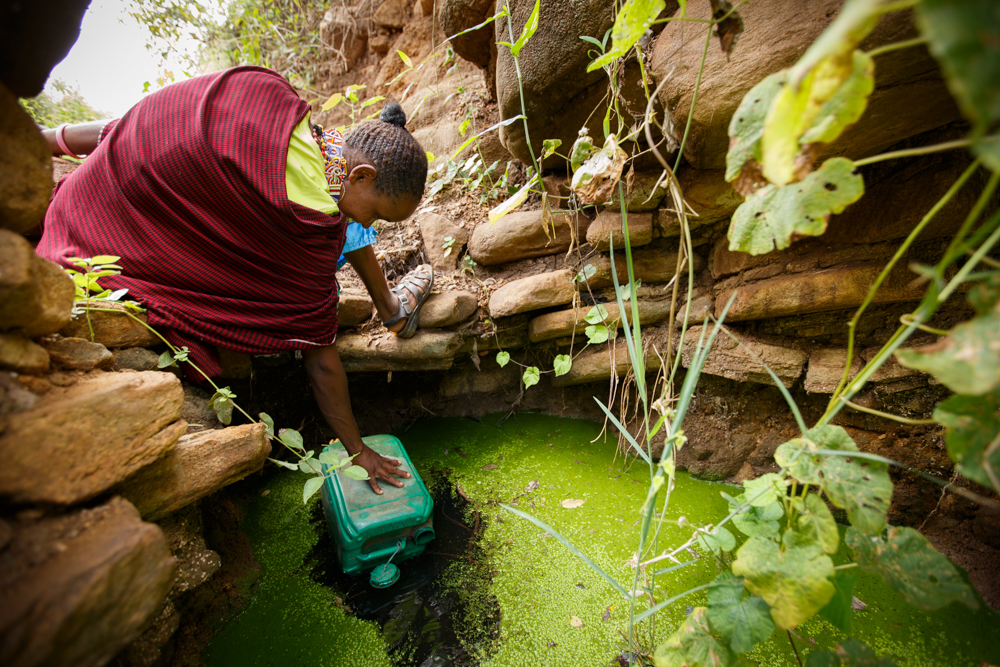
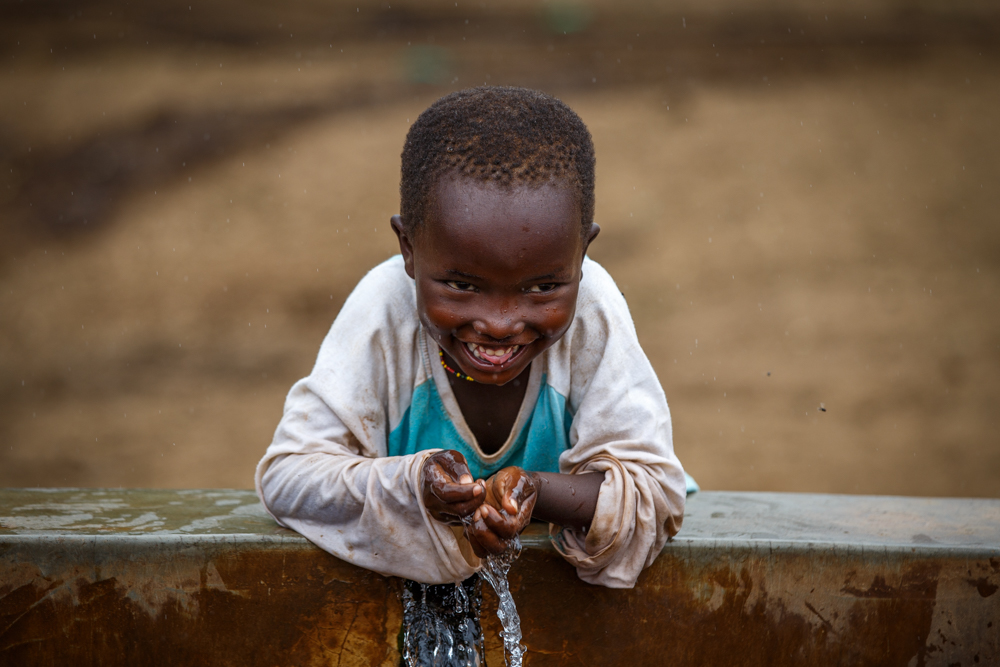
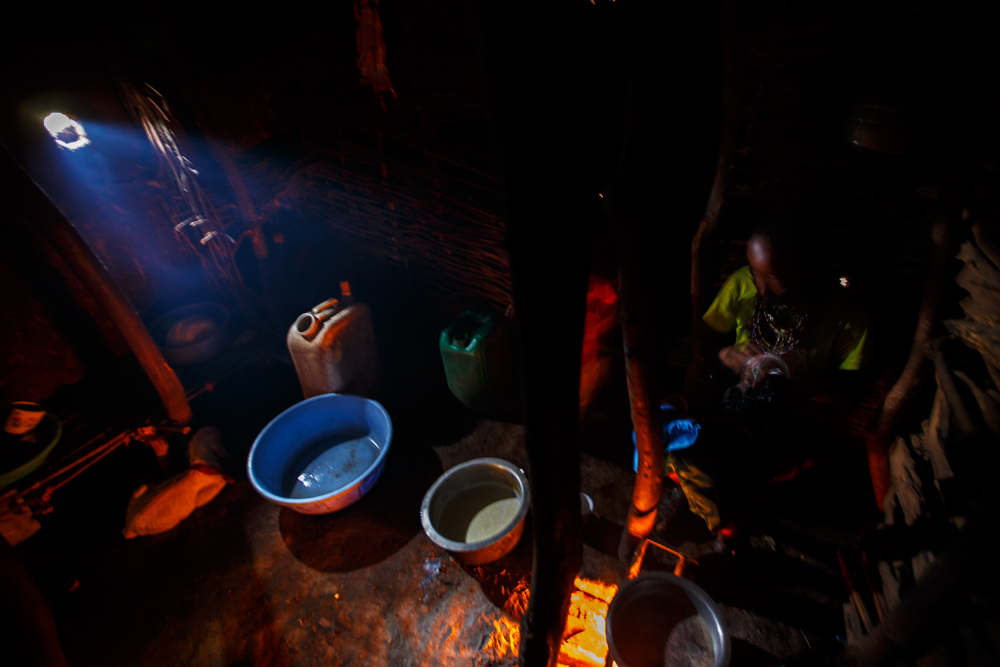
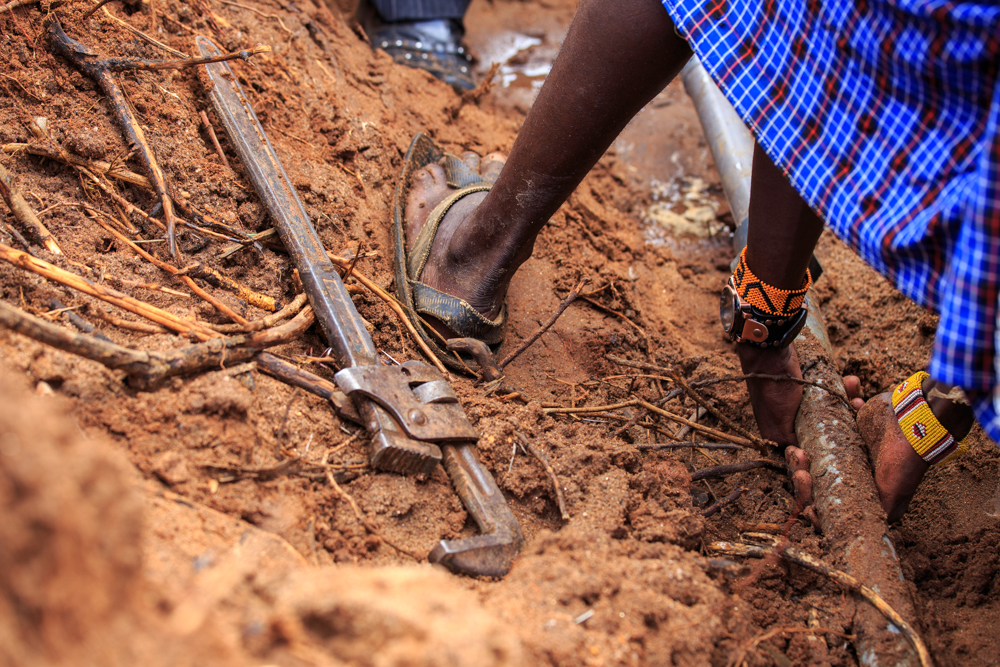
No choice but to drink it
Naomi lives with her husband, Edward, and their three boys in Kisapuk. It’s way off the beaten path, near Namanga, at Kenya’s southern border with Tanzania. She used to travel about two miles to get water for cooking and drinking. They shared the water with livestock and wild baboons. It often made them sick, but they had no choice but to drink it.
Depending on the day, she would wait for hours to get her turn filling her jerry cans at the well. Sometimes it took all day because she had to climb to the bottom of the spring and wait for water to seep up from the ground. The rock-walled pit got slippery in the rainy season.
Occasionally, Naomi would leave the house at 3 a.m. to beat the rush of people, and she’d return as late as 6 p.m. After the long walk, Naomi says, “Knowing I had to get water again tomorrow tortured me. I used to fear getting down into the pond because you could easily slip and fall and drown.”
New life, physically, spiritually
Naomi’s family now benefits from the well, storage tank, water station, and pipeline system World Vision began installing in 2012. The well serves about 2,000 people in their area, as well as about 600 children and teachers at four schools.
Every water facility her family and their livestock need is within a five-minute walk of the house. A pump feeds water from the well to a storage tank just feet away. The pipeline carries the water from the tank to the station about 40 feet away. It also is diverted to the animal watering trough in an open area about 100 feet from the station.
“In addition to getting water closer, life has changed,” Naomi says. “My personal hygiene has really improved because of water.”
Naomi collects water for drinking, cooking, and washing each day from the water station, which features two spigots and is managed by a volunteer from the community water committee. She pays about 3 cents for every five gallons, which funds system maintenance and repairs.
“We’re now comfortable; we’re not stressed anymore,” she says. “Now, for one, we can spend more time cooking for our children, cleaning in the house, and there’s more time available to go to the (village) shopping center.”
Naomi said they’re also able to attend church worship service on the weekends because she has time to make breakfast and get the kids ready early enough. Before, there was no time to visit church, relatives, or sick people.
“When the borehole was drilled and people saw water coming from the ground, people realized there is a God,” Naomi says. “That has made more people go to church and pray.”
Change for all generations
James Ole Ntuma, 57, is chairman of the village’s water committee. The group was trained by World Vision to steward day-to-day operation of the water system, including finances, repairs, and maintenance.
Dealing with the negative effects of drinking dirty water from far-off sources for most of his life, he says he’s joyful to see the community’s children in school every day because they aren’t skipping class to search for water.
“I am a living testimony that it is God who did this,” James says. “We never thought this would happen.”
James and his crew only call local World Vision staff if they need a referral to an expert for a more technical or advanced fix, such as finding a leak in the pipeline.
“We are able to do quite a number of things without World Vision,” says James. “We are able to maintain and manage on our own. But [ultimately] we want to work together [with World Vision].”
